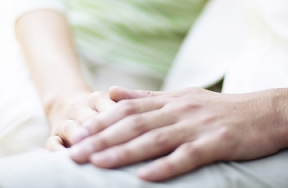
Shy about asking, “What’s the etiquette for supporting my loved one, friend or colleague in their battle against cancer?” many people simply avoid the question altogether – and offer nothing. “It’s okay to wonder, and it’s okay to ask. Be direct!” says Jane Schwartzberg, who has been battling stage 4 metastatic cancer for several years. She’s the co-author with Marcy Tolkoff Levy of “Naked Jane Bares All,” www.nakedjanebaresall.com, which shares her story with candor and humor.
Jane was a 31-year-old newlywed when she was first diagnosed with breast cancer. She underwent treatment and eventually was declared cancer free. She moved on with her life, giving birth to two children and launching a technology company. Then, when she was 42, the cancer returned. She’s now 45. What are some suggestions for providing support? She offers these:
•Do it without any expectations or requirements for a response. “I’m often asked, ‘What can I do to help?’ ” she says. “What I’ve suggested: Be in my life at my pace, let me take the lead; make your presence, availability and support known, but do it without any expectations or requirements for a response.”
•Embrace their big dream, even if it doesn’t sound realistic. During a very low point, Schwartzberg was asked by a friend: If you could have anything, swinging for the fences, what would help you get out of this pit? Without skipping a beat, she answered, “I want to take [comedian] Larry David out to lunch.” As impossible as it seemed, her friend encouraged her to write to the co-creator of “Seinfeld” — and he accepted.

•Don’t hesitate to say, “You look beautiful,” when health has returned. After her chemotherapy treatments ended, Jane slowly started looking like her old self – healthy Jane, not cancer Jane. Part of reengaging with life is caring about the superficial things, at least to some extent. On the unforgettable day she met Larry David, the maître d had beforehand told her that she looked beautiful, to which Jane responded, “You have no idea how much I appreciate that.”
•Don’t sugarcoat it. “If you want to really infuriate me, you’ll tell me that this whole mess is beshert, Yiddish for ‘meant to be’ – that it’s all part of a plan from a higher power,” she says. “Maybe terminal cancer is part of some crazy plan, but I promise you that these are the last things I want to hear from anyone.” Don’t sugarcoat or try to put a positive spin on what’s going on – in fact, it’s more of a comfort to Jane when others acknowledge that her situation stinks and that she is looking at a life that’s far different from, and likely to be shorter than, anything she’d imagined.











